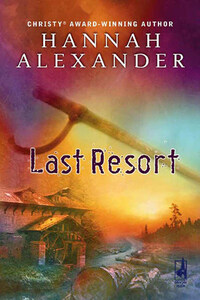This is entirely a work of fiction. The names, characters and incidents portrayed in it are the work of the author’s imagination. Any resemblance to actual persons, living or dead, events or localities is entirely coincidental.
Harper An imprint of HarperCollinsPublishers 1 London Bridge Street London SE1 9GF
www.harpercollins.co.uk
Published by HarperCollinsPublishers 2015
First published in 1985 by Granada Publishing
Copyright © Philip Caveney 1985
Philip Caveney asserts the moral right to be identified as the author of this work
Cover design layout © HarperCollinsPublishers 2015 Cover photographs ©
A catalogue record for this book is available from the British Library
All rights reserved under International and Pan-American Copyright Conventions. By payment of the required fees, you have been granted the non-exclusive, non-transferable right to access and read the text of this e-book on-screen. No part of this text may be reproduced, transmitted, down-loaded, decompiled, reverse engineered, or stored in or introduced into any information storage and retrieval system, in any form or by any means, whether electronic or mechanical, now known or hereinafter invented, without the express written permission of HarperCollins e-books
Ebook Edition © MAY 2015 ISBN: 9780008127992
Version: 2015-04-16
The backstreet bar was very nearly empty. Mark Austin settled himself onto a vacant stool at the counter and ordered cachaça. The bar-man, a dark-skinned young caboclo, brought him the drink and then left him to consume it in peace. Beyond the open doorway of the bar, the streets of Rio shimmered in the afternoon heat-haze.
Austin sighed. The cachaça was unpleasantly warm and within moments a fine film of sweat had moistened his face, neck and armpits. He was still not sure what he was doing here; looking for a little reality perhaps. The fancy main-street bars and cafés had none of the qualities he was seeking. That was for the tourists, a category to which he liked to think he did not belong. Here, there was only grime and squalor, but at least that was more honest; and it was in places like this that he tended to pick up his stock in trade. He gazed slowly around at the interior of the bar, noting the rusted tin tables, the mottled fly-blown mirrors; and then that the other occupant of the bar was looking at him curiously.
A grizzled old-timer in a slouch hat and a grubby khaki shirt, he was gazing at Austin with the quizzical expression of a man bored with his own company. He was also nursing an empty glass.
‘Drink?’ offered Austin, waving his own glass to make his meaning clear.
‘Hell, don’t mind if I do!’
Austin was pleasantly shocked. He had expected a string of unintelligible Portuguese for a reply, but this was clearly a fellow American. In an instant, the old man was perched on the stool opposite and the two were shaking hands with the kind of warmth only employed by compatriots in a distant land.
‘Mark Austin, Washington DC.’
‘Martin Taggart, somewhere in Wyoming. I forget where.’ The old man’s eyes twinkled but there was, Austin thought, an unmistakable trace of sadness in them. His voice was slow, gruff, laconic. Somehow it seemed to speak of wide experience.
‘Well then, Mr Taggart …’
‘Martin. All my friends call me Martin.’
‘Martin then! What’ll it be?’
‘Oh, I’ll have just whatever you’re drinking.’
Austin ordered a bottle of cachaça – the local raw white rum – and another glass. He took out a packet of cigarettes and offered one to the old man. Taggart shook his head.
‘No thanks. I gave those things up a long time ago. Never went back to them. No sir …’
Austin shrugged, put the cigarettes away. The cachaça arrived and the two men drank together in silence for a while.
‘So, what brings a feller like you to Rio?’ asked Taggart at last. ‘More importantly, what brings him to a piss-hole bar like this one?’
Austin considered the question for a moment. He’d had a couple of drinks so he thought: what the hell, come right out with it.
‘Adventure,’ he said.
Taggart raised his eyebrows. ‘Come again?’














